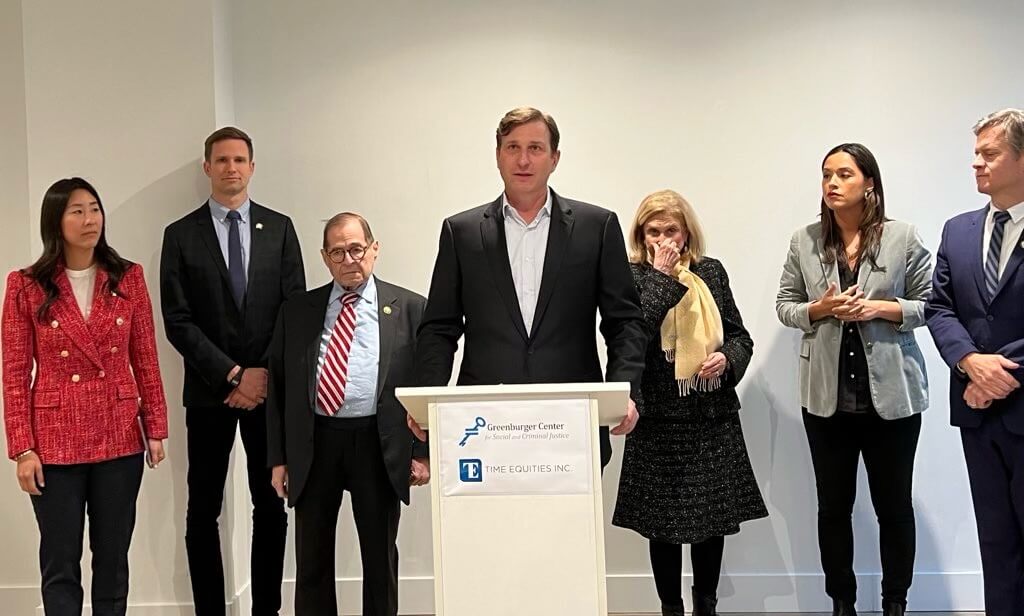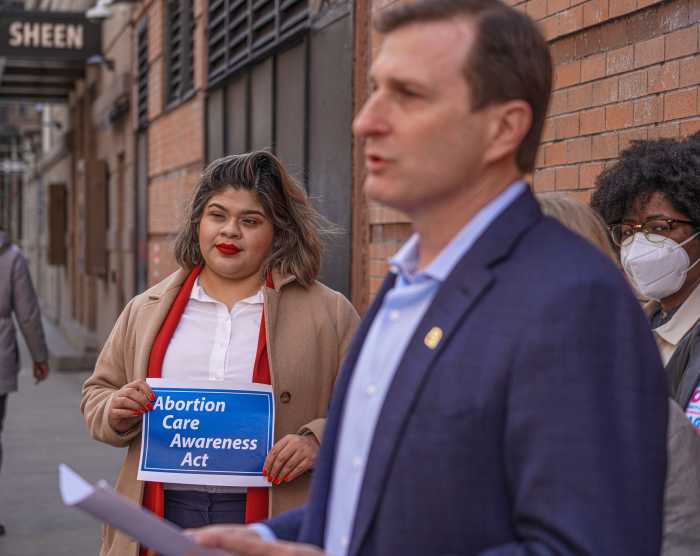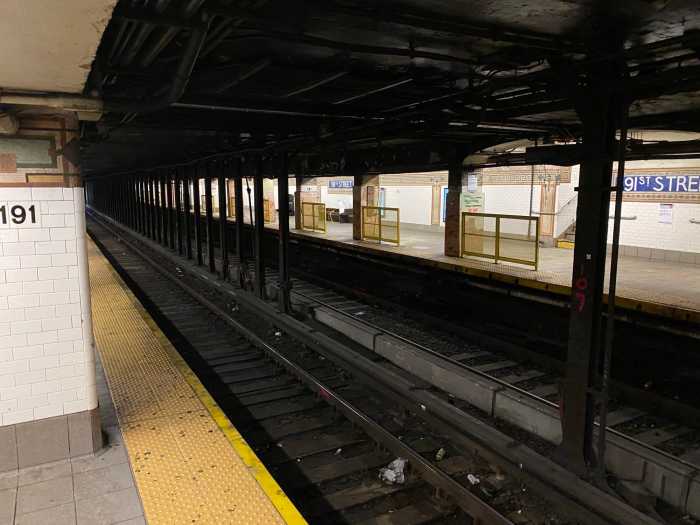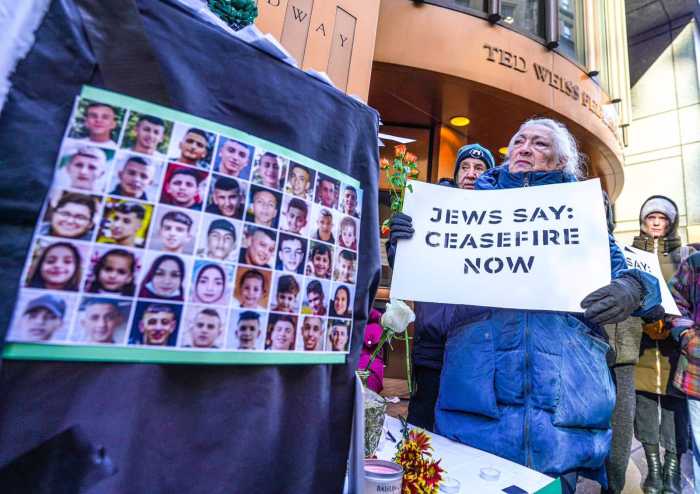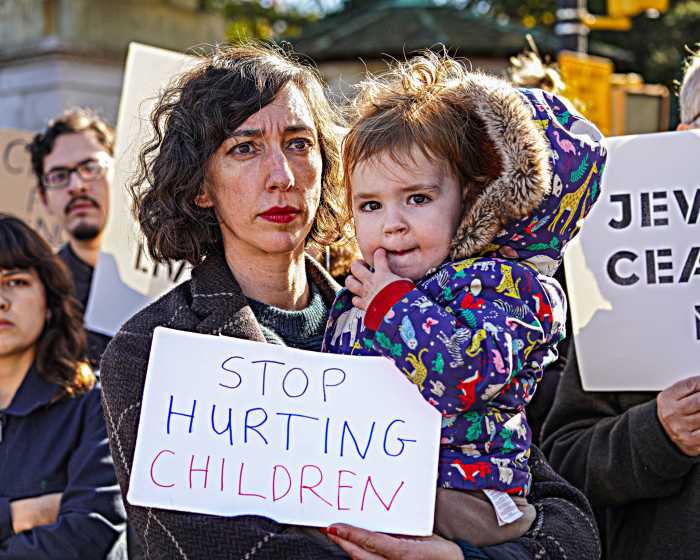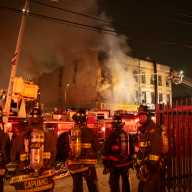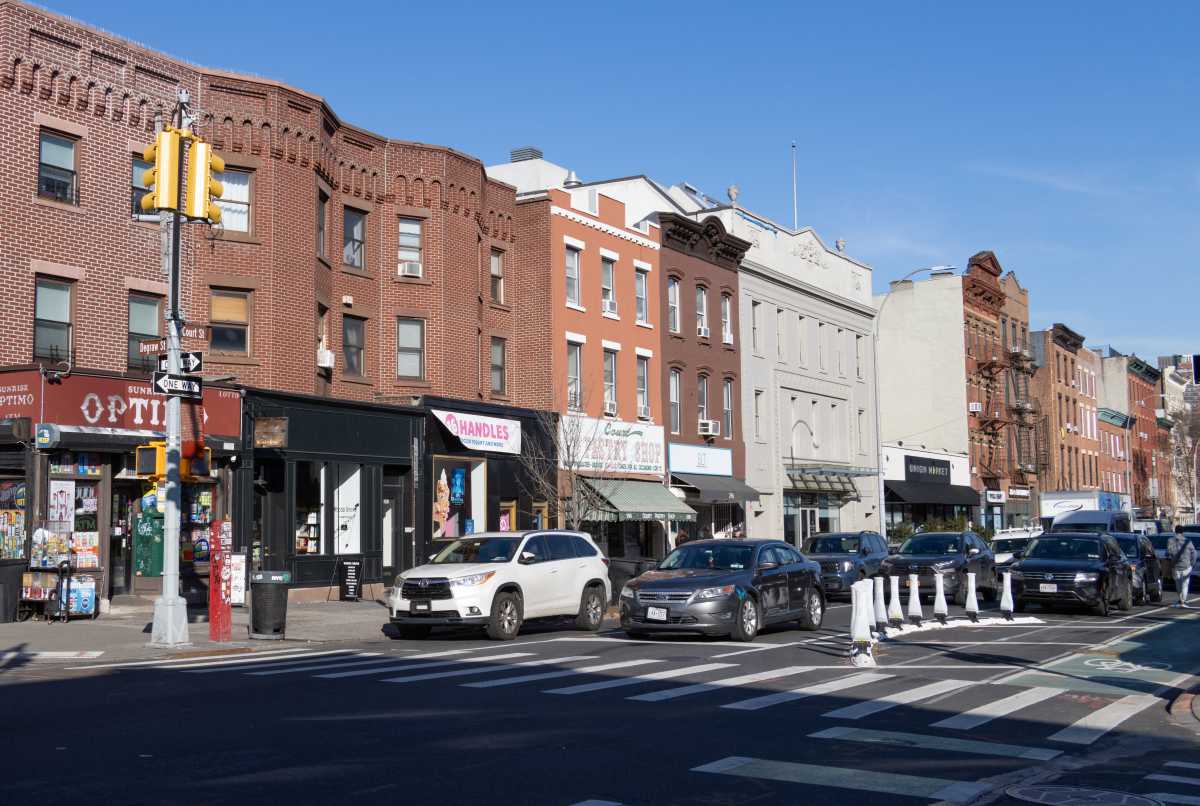Just a little over a year since Michelle Alyssa Go was tragically pushed to her death by a mentally ill man at the Times Square subway station, Rep. Dan Goldman (NY-10) said he plans to introduce legislation that would expand access to psychiatric care.
Goldman announced Thursday that he was introducing the bill, called the Michelle Alyssa Go Act, at the Greenburger Center for Social and Criminal Justice in Manhattan. The bill is currently being finalized.
The Michelle Alyssa Go Act takes aim at a Medicaid exclusion, known as the Institution for Mental Diseases, which prohibits Medicaid from covering long-term stays for patients aged 21 to 64 who are receiving mental health or substance abuse treatment in a facility with more than 16 beds. The bill would repeal that exclusion and incentivize mental healthcare institutions to free up space for people with severe mental illnesses.
He was joined by Congressman Jerry Nadler, Assemblymember Grace Lee (D-65), representatives from the National Alliance on Mental Illness of New York City, the Treatment Advocacy Center, and Councilmembers Erik Bottcher, Carlina Rivera, and Keith Powers.
Former Congressmember Carolyn Maloney was also present at Thursday’s announcement. She introduced the bill in the last Congress. Goldman will introduce it in this session.
“What this law will do is to allow mental health institutions to be reimbursed by Medicaid if they have more than 16 beds designated for mental health treatment,” Goldman said. “By doing that, we are increasing the services that are really in demand.”
The bill would remove the age limitation for medical reimbursement, so that IMD patients between the ages of 22 and 64 are eligible for Medicaid reimbursement. It would also allow any institution to qualify as an IMD, regardless of the number of beds, as long as the institution primarily treats people with mental illnesses and meets national standards set by the Centers for Medicare & Medicaid Services.
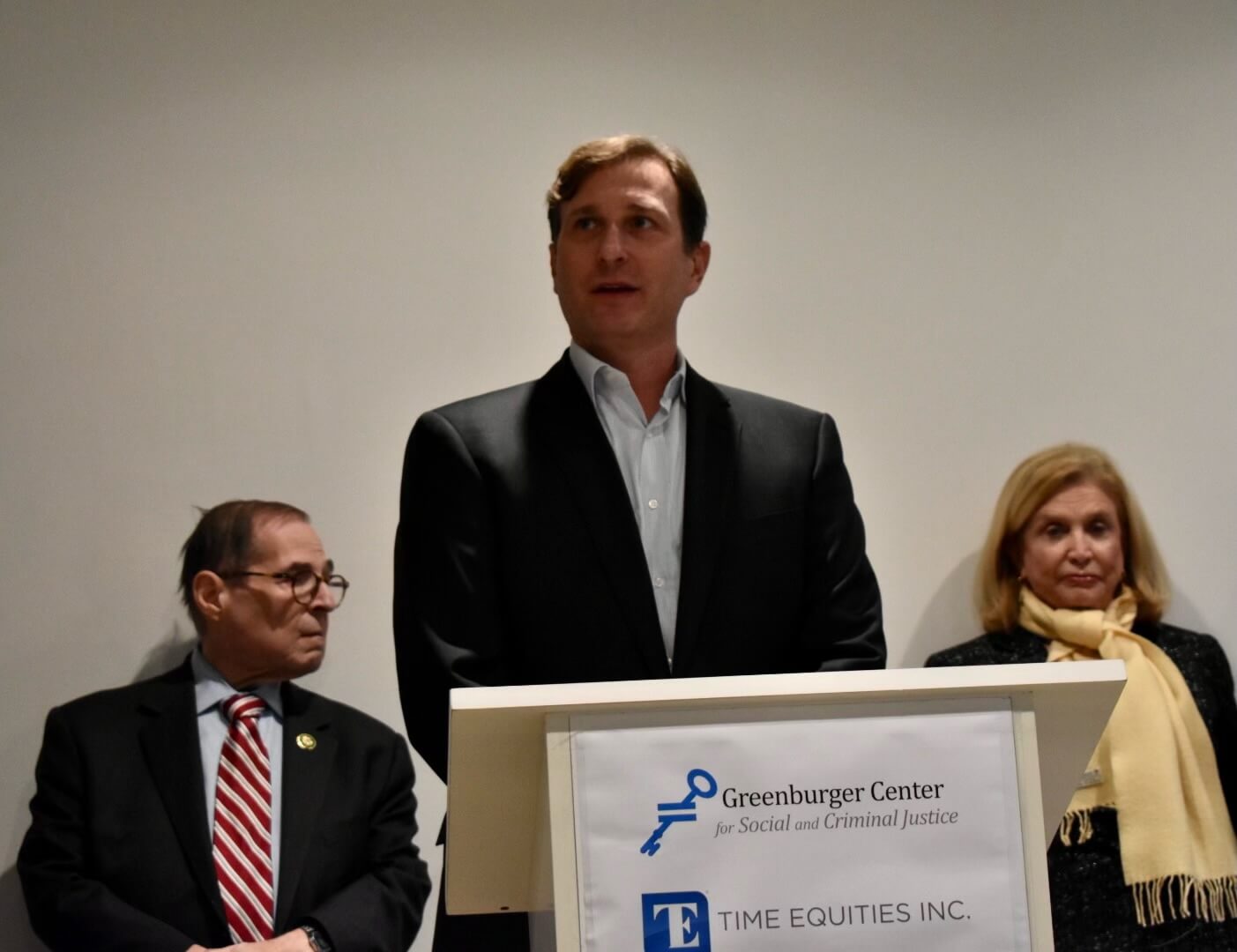
Both the National Alliance on Mental Illness of New York City and the Treatment Advocacy Center are advocating for the passage of the Michelle Alyssa Go Act.
Kimberly Blair, NAMI-NYC Director of Policy, called the IMD exclusion “arbitrary” while Michael Gray, policy director for Treatment Advocacy Center, recently pointed to the “distressingly short supply” of inpatient psychiatric beds and community-based residential treatment facilities.
“The horrific murder of Michelle Go was preventable,” said Councilmember Bottcher, whose district encompasses Times Square. “So is the suffering of countless Americans with untreated mental illness. It’s unconscionable that current federal law prohibits Medicaid from covering most impatient psychiatric services.”
The exclusion has been in effect since Medicaid was established in 1965 and is a barrier for people like Martial Simon, the man who killed Go, from being able to access care. Simon had been diagnosed with schizophrenia and was in and out of the shelter system in the city for two decades, his family had said. Most homeless New Yorkers lack the money to cover these services out of pocket, Goldman said.
“The man had previously sought mental health treatment, but had been turned away because there were no beds available for him,” Goldman said. “This piece of legislation is an important piece to tackling the mental health crisis that we are experiencing and that has increased in seriousness since the COVID pandemic.”
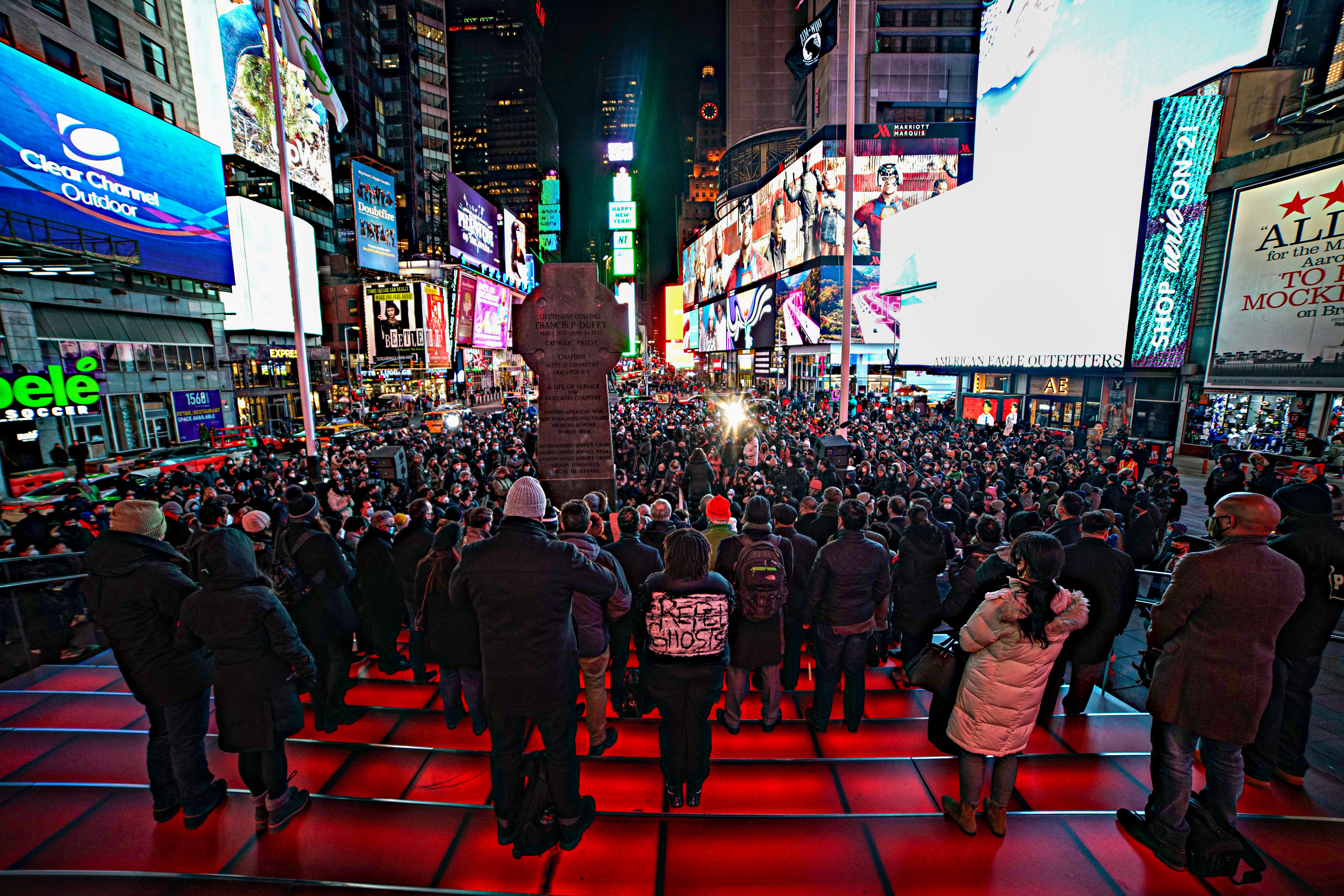
Read more: Adams Considers Mastro for Top Legal Role



